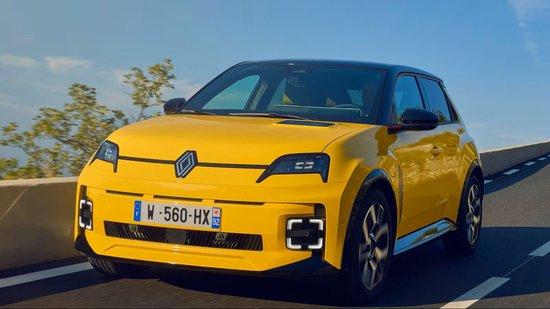
(Reported by/Observation Network, Zhang Jia Dong, Edited by/Gao Xin)
On July 15th local time, the Renault Group announced that it had appointed Duncan Minto, the Chief Financial Officer of the group, as its interim CEO to replace Luca de Meo, who officially resigned on the same day.
Renault Group Interim CEO Duncan Minto – Renault Group official website
Renault stated that Minto will manage the company alongside Chairman Jean-Dominique Senard.
Minto, after graduating from university, joined Renault’s UK branch and has been responsible for related work within the group and the Renault-Nissan financial department for a long time. On March 1st this year, Minto succeeded Thierry Pieton as Chief Financial Officer of the Renault Group and possesses extensive experience in finance.
Meanwhile, efforts are underway to find the next permanent CEO. However, Renault has not yet announced the selection date for the new successor.
Following Carlos Ghosn’s arrest, Luca de Meo led Renault in developing a new strategic plan and achieved the company’s best financial data in history last year. However, on June 15th this year, Luca suddenly proposed resigning and took over the luxury group Kering from an interdisciplinary perspective.
This also means that Renault, which is currently in a market expansion phase and at a critical stage of transformation, urgently needs a leader to stabilize its development direction. Along with the latest appointment announcement, Renault also declared that due to increased competition and a decline in the automotive market, the company has just lowered its expected operating profit margin for 2025 from the previous minimum of 7% to around 6.5%.
Currently, Renault’s best-selling models include the cost-effective Dacia Sandero and its electric vehicle, the Renault 5. Thanks to their low costs and rapid product introduction capabilities, they outperformed European competitors such as Stellantis and Volkswagen last year in terms of market share and profitability. Moreover, focusing on the European market has helped them avoid the impact of Trump tariffs in the first half of this year.
However, Renault is not without pressure in its home market. Since the beginning of the year, there has been a weak demand for European car markets, and Renault’s high-volume small cars are also facing intense competition from new pure electric and hybrid models.
The company claims that due to delayed bills and a downturn in the European passenger car and commercial vehicle markets, its free cash flow for the first half of the year was estimated at 47 million euros (approximately 390 billion yuan).
Mingto stated, “The entire European retail market is showing weakness, and we have not seen any positive trends in our competitive positioning or pricing.”
To stabilize financial data, Mingto mentioned that the company would increase its efforts to cut costs, with a focus on back-end departments, production, and R&D.
“European Automotive News” highlighted in related reports that the revised profit margin guidance highlights the challenges faced by Renault’s next management team, including a sluggish European demand, escalating trade tensions, and the increasing competitiveness of Chinese manufacturers led by BYD and MG in Europe.
Among the latest announced official CEO candidates for Renault, there will be Denis Le Vot, CEO of the Dacia brand; Maxime Picat, former Chief Purchasing Officer of Stellantis; and François Provost, Director of Procurement for the Renault Group.
Foreign media reports that, currently, Mingto and the newly appointed management team are not only required to resolve the electric vehicle dilemma faced by Renault following the relaxation of European carbon emission policies but also need to decide on its future alliance with Nissan, as well as the company’s current aggressive expansion into supplier partnerships in China.
It is reported that after Mingto takes over, Renault’s next strategic plan, “Future Future,” will be officially unveiled this autumn.